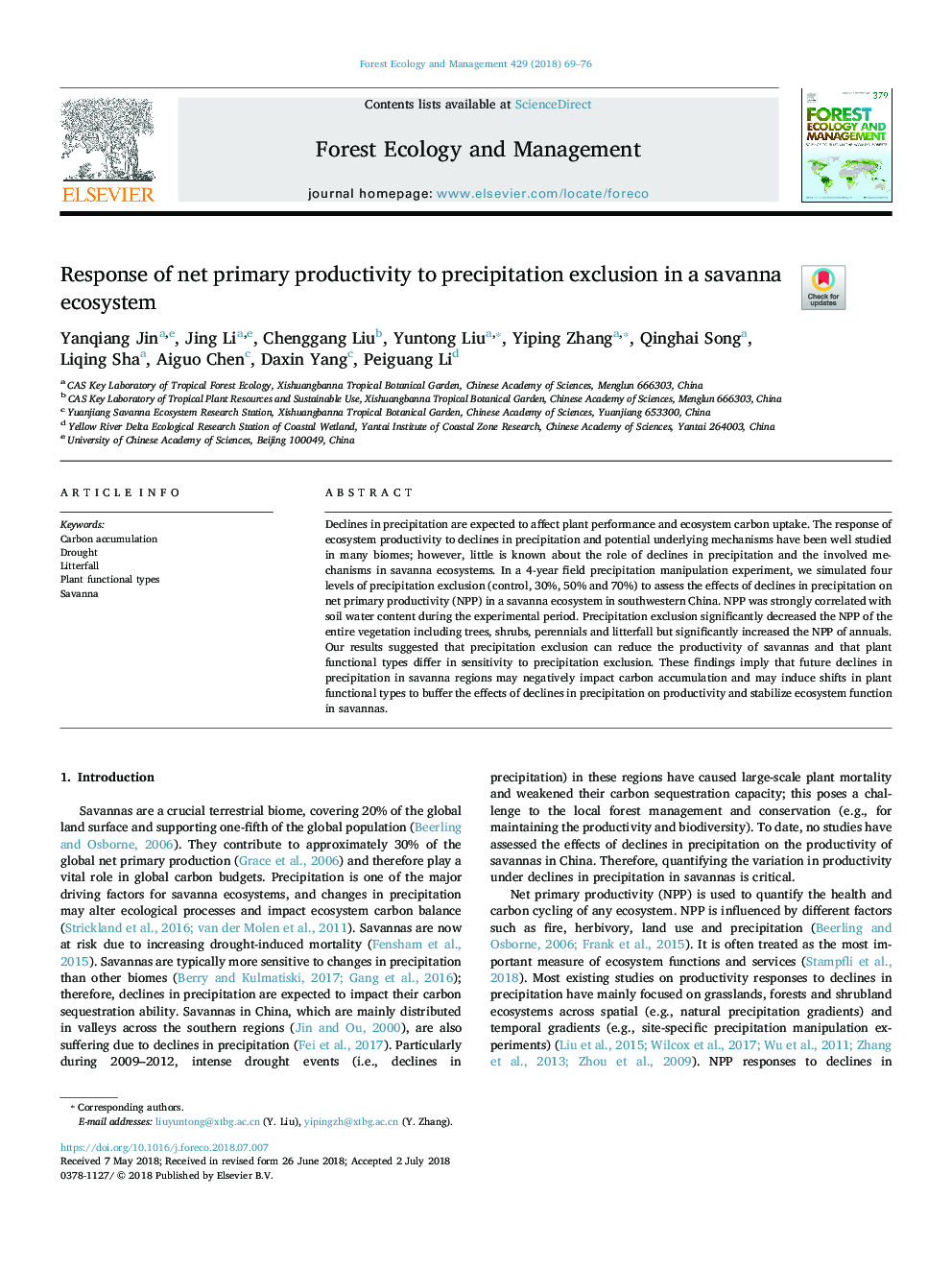| Article ID | Journal | Published Year | Pages | File Type |
|---|---|---|---|---|
| 6541419 | Forest Ecology and Management | 2018 | 8 Pages |
Abstract
Declines in precipitation are expected to affect plant performance and ecosystem carbon uptake. The response of ecosystem productivity to declines in precipitation and potential underlying mechanisms have been well studied in many biomes; however, little is known about the role of declines in precipitation and the involved mechanisms in savanna ecosystems. In a 4-year field precipitation manipulation experiment, we simulated four levels of precipitation exclusion (control, 30%, 50% and 70%) to assess the effects of declines in precipitation on net primary productivity (NPP) in a savanna ecosystem in southwestern China. NPP was strongly correlated with soil water content during the experimental period. Precipitation exclusion significantly decreased the NPP of the entire vegetation including trees, shrubs, perennials and litterfall but significantly increased the NPP of annuals. Our results suggested that precipitation exclusion can reduce the productivity of savannas and that plant functional types differ in sensitivity to precipitation exclusion. These findings imply that future declines in precipitation in savanna regions may negatively impact carbon accumulation and may induce shifts in plant functional types to buffer the effects of declines in precipitation on productivity and stabilize ecosystem function in savannas.
Related Topics
Life Sciences
Agricultural and Biological Sciences
Ecology, Evolution, Behavior and Systematics
Authors
Yanqiang Jin, Jing Li, Chenggang Liu, Yuntong Liu, Yiping Zhang, Qinghai Song, Liqing Sha, Aiguo Chen, Daxin Yang, Peiguang Li,
